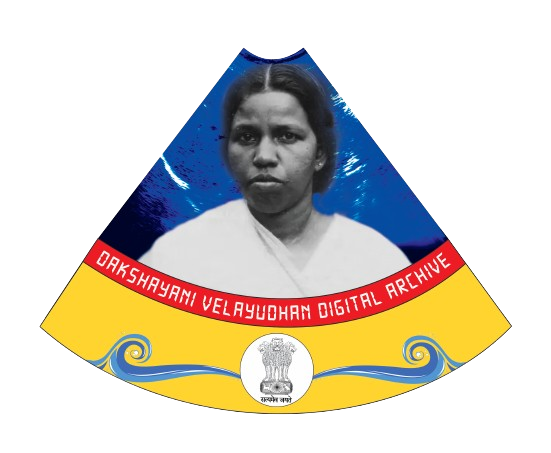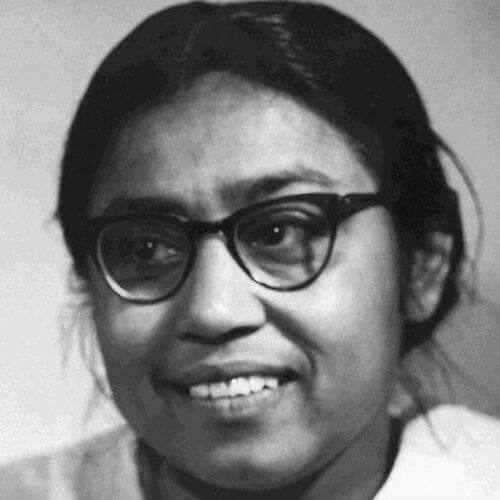Sucheta Kripalani, born in 1908 in Ambala, present-day Haryana, played a significant role in India’s struggle for independence. Notably remembered for her active involvement in the Quit India Movement of 1942, Kripalani emerged as a prominent figure arrested by the British during this movement. Her collaboration with Mahatma Gandhi during the Partition riots showcased her dedication to the cause.
| Attribute | Details |
| Full Name | Sucheta Kripalani |
| Birthdate | June 25, 1908 |
| Birthplace | Ambala, Punjab (Present-day Haryana) |
| Party Affiliation | Indian National Congress |
| Constituency | United Provinces |
| Mother Tongue | Hindi |
| Education | Graduate |
| Committee Memberships | Advisory Committee on Fundamental Rights, Minorities, and Tribal and Excluded Areas |
| Role in Quit India Movement (1942) | Arrested by the British; worked closely with Mahatma Gandhi during Partition riots |
| Constituent Assembly (1946) | Elected member; part of Flag Presentation Committee |
| Post-Independence Political Career | Member of Provincial Parliament (1950-52); First Lok Sabha (1952-56); Second Lok Sabha (1957-62) |
| Chief Minister of Uttar Pradesh | October 1963 to March 1967 |
| International Engagements | Delegations to Turkey (1954), International Labour Organization (1961), United Nations General Assembly (1949) |
| Autobiography | “Sucheta: An Unfinished Autobiography” |
| Key Writings | Sucheta: An Unfinished Autobiography |
COMMITTEE MEMBERSHIPS
Member:
Advisory Committee on Fundamental Rights, Minorities and Tribal and Excluded Areas
About Sucheta Kripalani
Sucheta Kripalani, born in 1908 in Ambala, present-day Haryana, played a significant role in India’s struggle for independence. Notably remembered for her active involvement in the Quit India Movement of 1942, Kripalani emerged as a prominent figure arrested by the British during this movement. Her collaboration with Mahatma Gandhi during the Partition riots showcased her dedication to the cause.
As one of the few women elected to the Constituent Assembly of India, Sucheta Kripalani made history by becoming the first woman Chief Minister of Uttar Pradesh. Her contributions extended to the drafting of the Indian Constitution, where she was part of the subcommittee that laid down the charter. Additionally, Kripalani founded the All India Mahilla Congress in 1940, emphasizing the importance of women in political discourse.
BIOGRAPHY
Early Life
Born in Ambala in June 1908, Sucheta Kripalani completed her education at Indraprastha College, Delhi University. Her journey into politics began when she joined the Congress Party in 1938. A teacher of Constitutional History at Banaras Hindu University, she married Acharya Kripalani, a Congress party member and freedom fighter, in 1936.
Role in India’s Independence Movement
Actively participating in the Indian independence movement, Kripalani showcased her commitment during the Quit India movement in 1942. Despite evading arrest initially, she was eventually detained in 1944 for a year.
Contribution to Constitution Making
Elected to the Constituent Assembly in 1946 from the United Provinces, Kripalani was a member of the Flag Presentation Committee. This committee presented the first Indian Flag before the Constituent Assembly.
Later Contributions
As a staunch Gandhian, she accompanied Gandhi during the partition riots, actively participating in the rehabilitation of refugees. Kripalani’s political career extended to various roles, including serving as a Minister in Uttar Pradesh, where she played a crucial part in the state’s governance. Notably, she became the first female Chief Minister of an Indian State, holding office from October 1963 to March 1967.
A participant in international delegations and organizations, Kripalani made substantial contributions to parliamentary and civic responsibilities, leaving an indelible mark. She passed away in 1974, leaving behind a legacy of service and dedication.
Key Writings
Kripalani authored “Sucheta: An Unfinished Autobiography,” providing insights into her life up to 1947.
KEY SPEECHES
Despite not making direct interventions in the Constituent Assembly, Sucheta Kripalani’s actions spoke volumes about her dedication to the nation and its people.
Sucheta Kripalani’s life journey exemplifies a remarkable blend of leadership, activism, and dedication to the ideals of the Indian freedom struggle.
Selected Speeches from Constitutional Assembly Debates:
Singing of Vande Mataram[1]
Mr. President: The first item on the Agenda is the singing of the first verse of VANDE MATARAM. We will listen to it all standing.
Shrimati Sucheta Kripalani (United Provinces: General) sang the first verse of VANDE MATARAM.
Singing of National Songs[2]
Mr. President: The next item is the singing of the first few lines of Sare Jahan se Achcha Hindustan Hamara and the first verse of Janaganamana Adhinayaka Jaya He.
(Shrimati Sucheta Kripalani sang the first few lines of Sare Jahan Se Achcha Hindustan Hamara and the first verse of Janaganamana Adhinayaka Jaya He.)
[1] Singing of the song Vande Mataram, C.A.D., Vol. V, L.S.S., 14 August 1947, p. 1
[2] Singing of the National Songs, C.A.D., Vol. V, L.S.S., 14 August 1947, p. 11.

